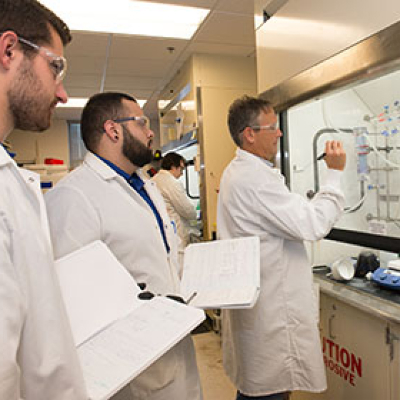
Researchers at The University of Texas at San Antonio (UTSA) are working with cutting-edge resources to make impactful discoveries in brain health with support from the Max and Minnie Tomerlin Voelcker Fund. With its generosity and belief in the power that science has to improve ordinary lives, the Voelcker Fund is aiding UTSA in bringing stem cell and regenerative medicine research to new heights.
The fund’s support is advancing UTSA research to generate stem cells for use in regenerative medicine. John McCarrey, Robert J. Kleberg, Jr. and Helen C. Kleberg Distinguished University Chair in Cellular and Molecular Biology, uses pluripotent stem cells to address neurodegenerative diseases.
“In the past, researchers used skin or blood cells from a person with a disease like Alzheimer’s to get a closer look at their illness,” McCarrey said. “However, because Alzheimer’s is a disease of the brain, not of the blood or skin, it was questionable whether looking at those cells was particularly useful.”
With collaborators Doug Frantz, Max and Minnie Tomerlin Voelcker Distinguished Professor in Chemistry, Chris Navara, associate professor of research, and George Perry, Semmes Foundation Distinguished University Chair in Neurobiology and Dean of the College of Sciences at UTSA, and the support of the Voelcker Fund, McCarrey has created PriStem, a UTSA facility that is solely focused on finding ways to treat neurodegenerative disease and other afflictions with pluripotent stem cells.
I’m very excited by UTSA’s interdisciplinary initiatives in brain health research. We’re now working to build a consortium leveraging expertise in several different disciplines, to yield innovative research that can have a truly tremendous impact on human lives.

UT San Antonio Main Campus
North Paseo Building, Suite 420
Phone: 210-458-4130
Email: giving@utsa.edu
We are committed to helping friends and supporters of The University of Texas at San Antonio engage with the university in ways that will create a bold future for our students, faculty, and staff. Whatever your interest at UT San Antonio, we can help you make a lasting impact on Roadrunner Nation.